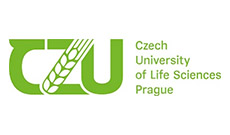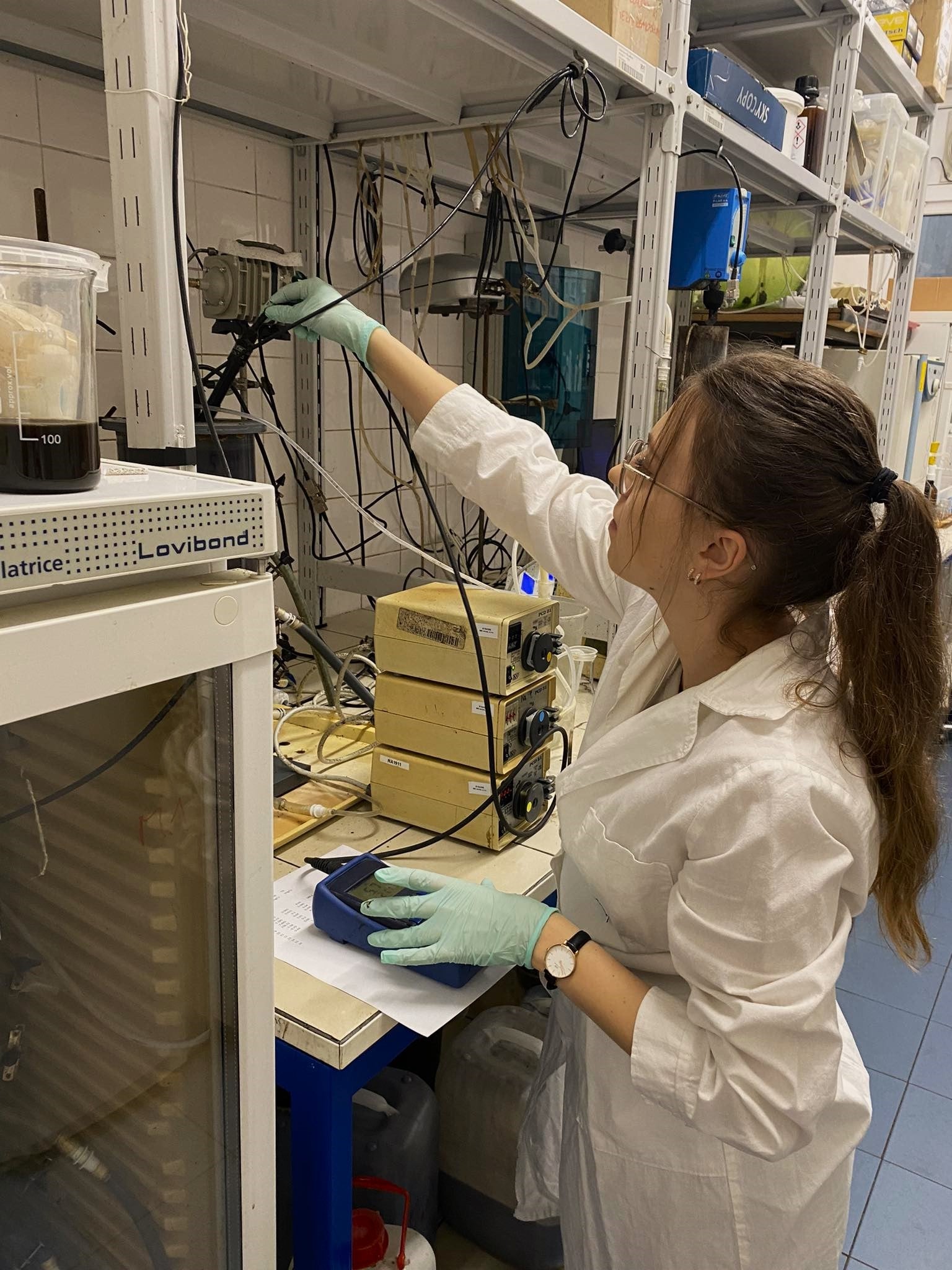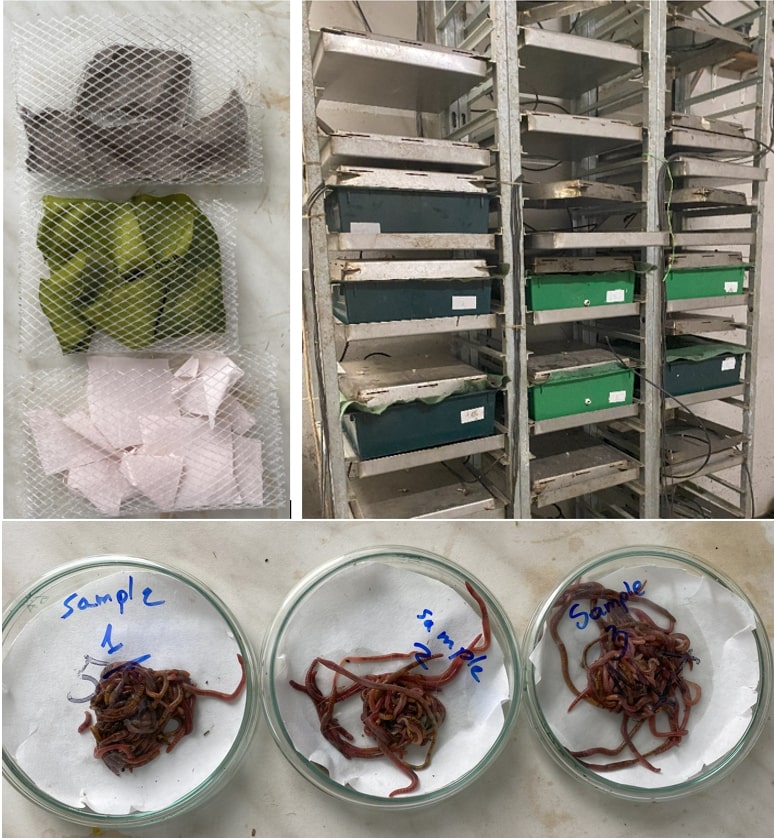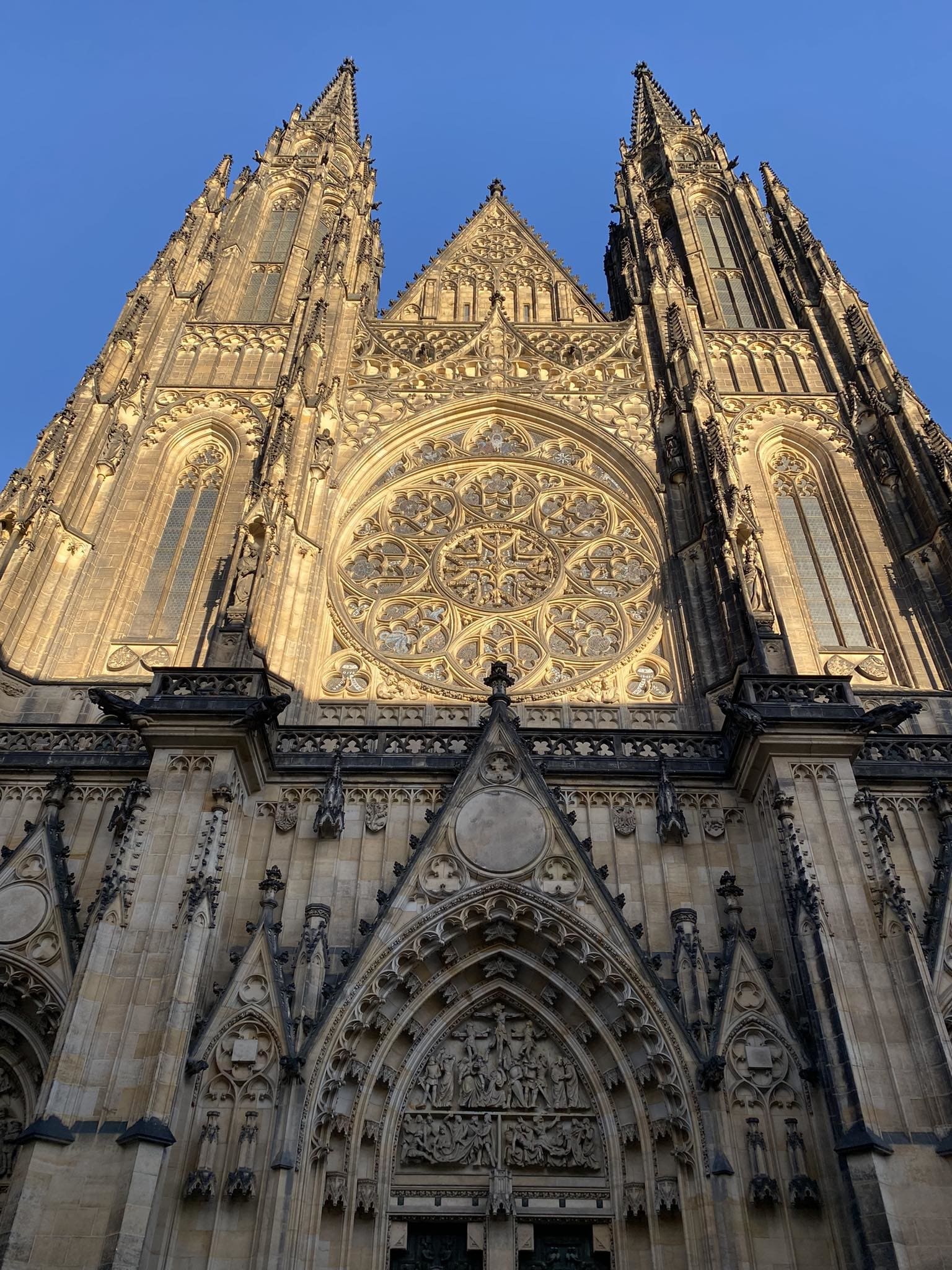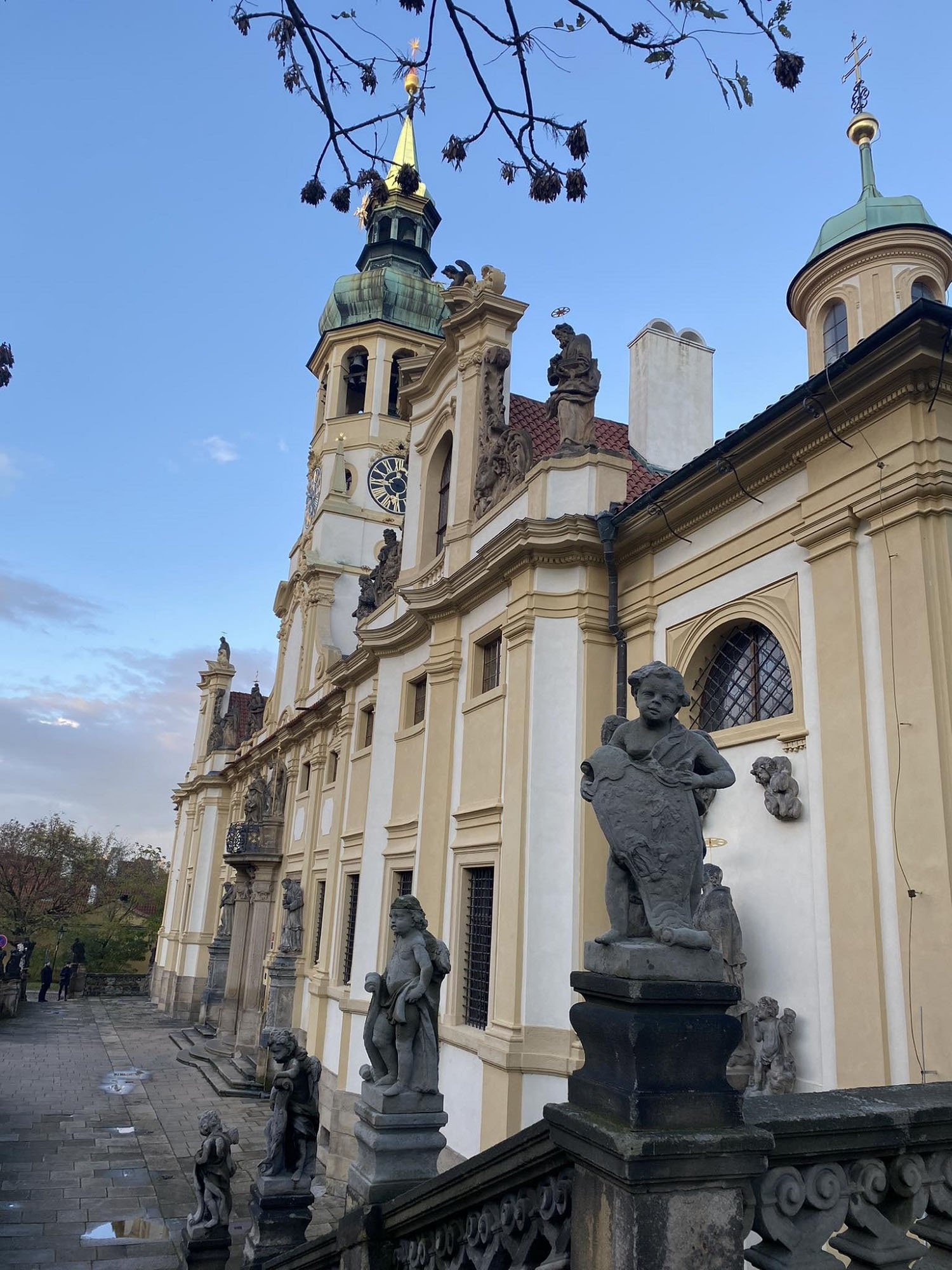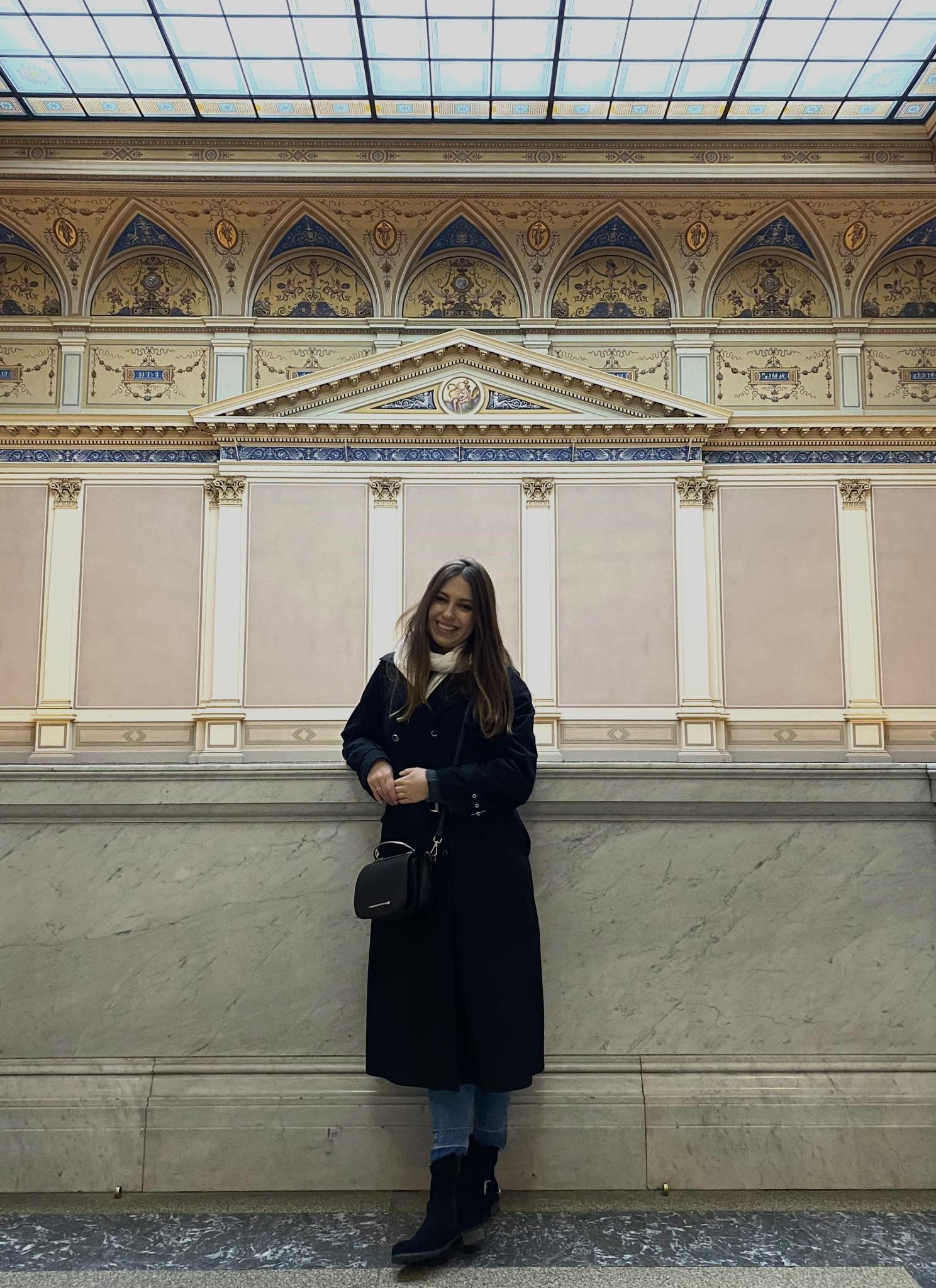
Wiktoria Błaszczyk, Msc
2nd year of Doctoral School
Discipline: Agriculture and Horticulture
Czech University of Life Sciences Prague,
Faculty of Agrobiology, Food and Natural Resources,
Department of Agroenvironmental Chemistry and Plant Nutrition.
I had the pleasure of undertaking an international research internship at the Czech University of Life Sciences Prague, Faculty of Agrobiology, Food and Natural Resources, Department of Agroenvironmental Chemistry and Plant Nutrition, from October 16 to December 15, 2023. My academic supervisor was Prof. Ing. Pavel Tlustoš, whose research primarily centers around the processing and recycling of waste materials, as well as their applications in agriculture and horticulture.
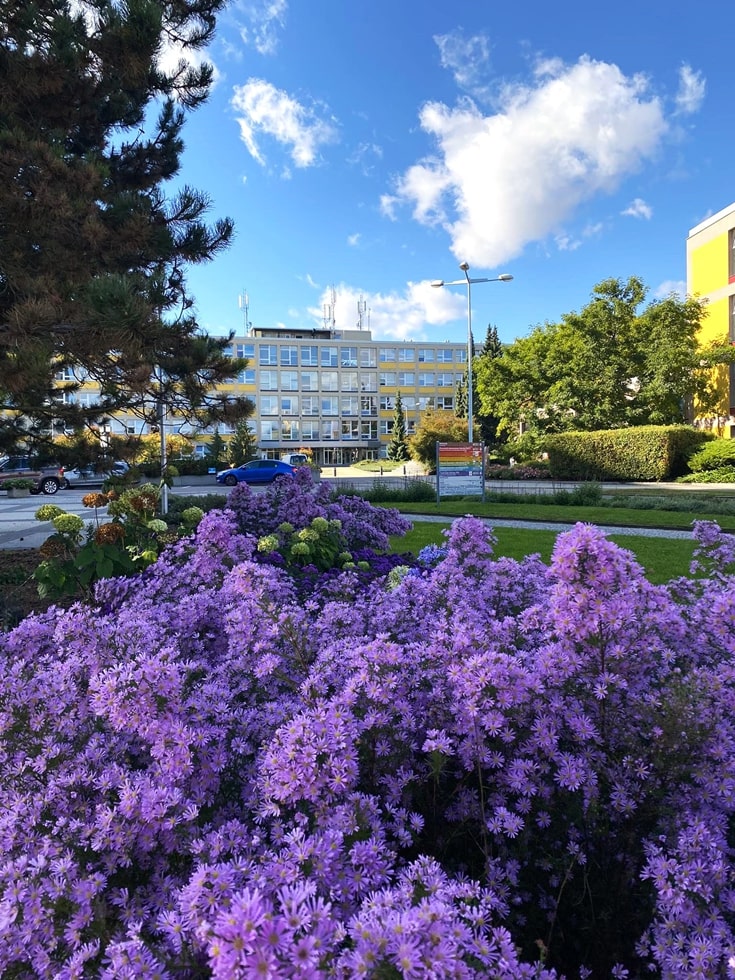 Faculty of Agrobiology, Food and Natural Resources
Faculty of Agrobiology, Food and Natural Resources
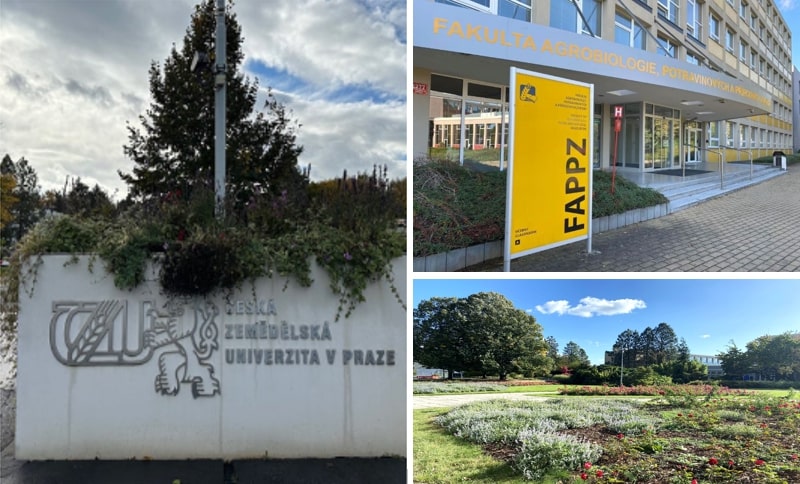 The campus of the Czech University of Life Sciences Prague
The campus of the Czech University of Life Sciences Prague
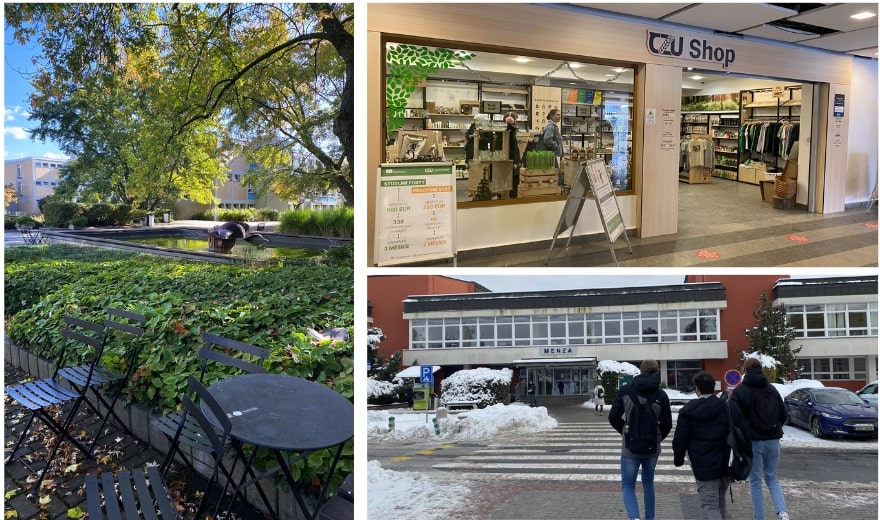 The campus of the Czech University of Life Sciences Prague
The campus of the Czech University of Life Sciences Prague
The aim of the internship was to expand knowledge and skills, as well as acquire expertise in the field of sewage sludge management and other biodegradable waste.
During the two months of the internship, I actively participated in monitoring the process of biological oxidation of ammonia from the liquid part of the digestate. The experiment was conducted in a continuously stirred tank reactor, and therefore samples were regularly taken for chemical and physical analysis. The biological material was analyzed, among others, in terms of the content of total ammonium nitrogen, nitrite nitrogen, nitrates and chemical oxygen demand.
I also had the opportunity to learn about the methods of carrying out the pyrolysis process, and I took part in setting up experiments: vermicompost and textile compost from natural fibers.
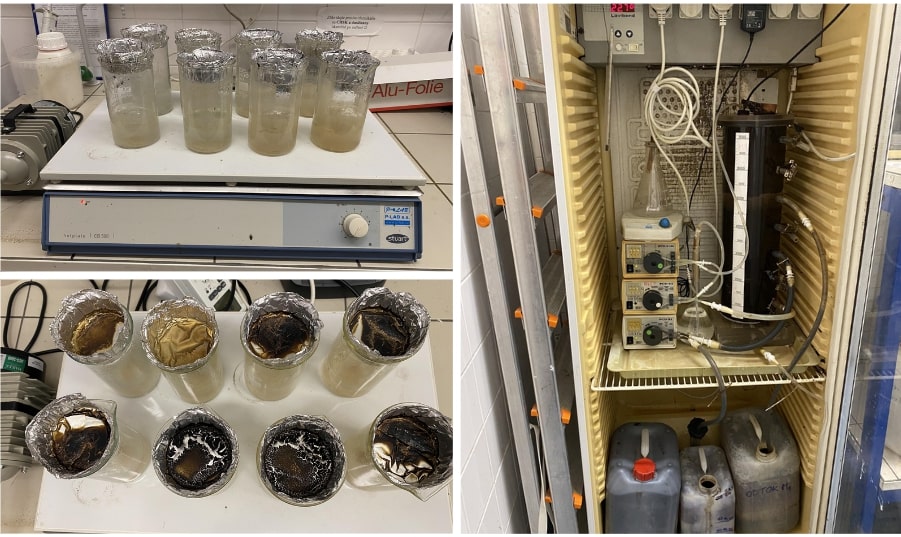 Gravimetric analysis (left) and a bioreactor for carrying out the biological oxidation of ammonia from the liquid part of the digestate (right)
Gravimetric analysis (left) and a bioreactor for carrying out the biological oxidation of ammonia from the liquid part of the digestate (right)
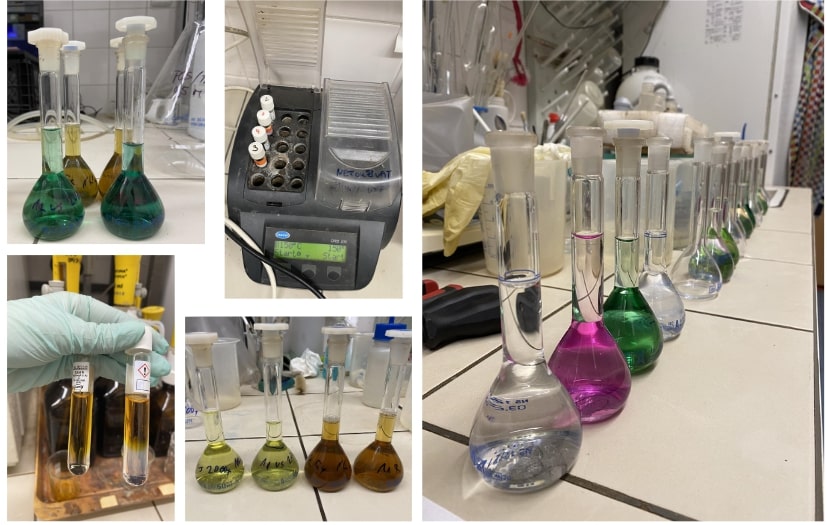 Analysis of the content of total ammonium nitrogen, nitrite nitrogen, nitrates and chemical oxygen demand
Analysis of the content of total ammonium nitrogen, nitrite nitrogen, nitrates and chemical oxygen demand
An additional activity during the internship was giving a presentation related to the topic of my research at a seminar for PhD students and department employees.
I also had the opportunity to take part in field trips organized by the department’s employees. During my first trip, I was shown around the area of an agricultural biogas plant in Cervene Janovice in central Czech Republic. The biogas plant is operated in mesophilic conditions, in which mainly manure and cattle slurry (approximately 70% of the mass), corn silage and grass silage are the basic substrates for biogas production. Additionally, at the biogas plant, I had the opportunity to see a pilot installation designed by the department’s employees for the treatment of the liquid fraction of digestate using the nitrification method.
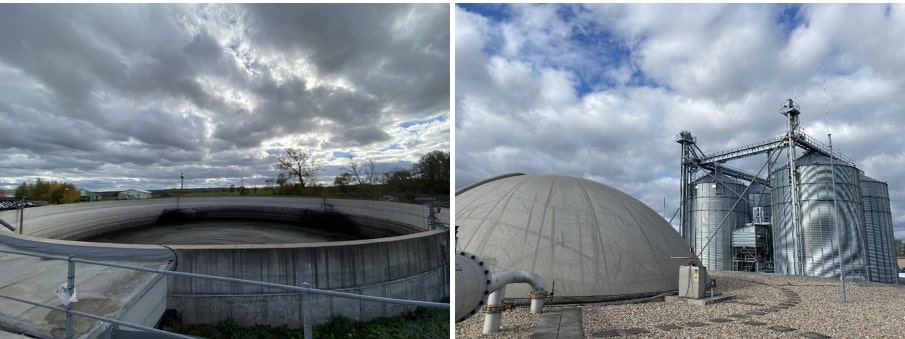 Agricultural biogas plant in Cervene Janovice in Central Czech Republic
Agricultural biogas plant in Cervene Janovice in Central Czech Republic
The second field trip was organized to the Central Wastewater Treatment Plant in Prague. This treatment plant is distinguished primarily by its location, as it is located on the Císařské Island of the Vltava River. Together with a group of students, I had the opportunity to get to know each other with the operation of the sewage treatment plant and the management of raw materials obtained after wastewater treatment. I also participated in a trip to the Waste Utilization Plant – Malešice Incinerator. This facility is used to burn municipal waste and produce heat and electricity.
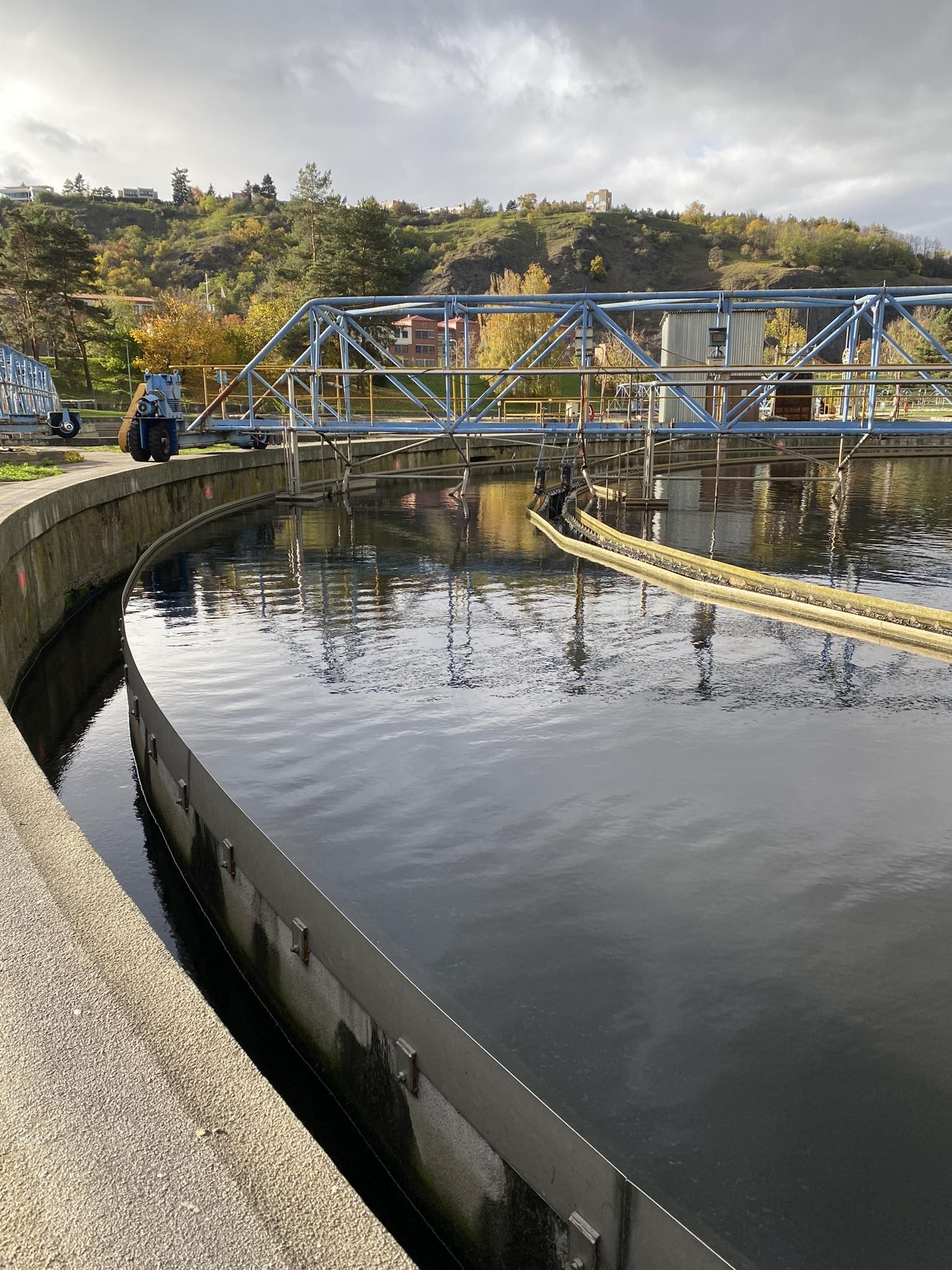 Central Wastewater Treatment Plant in Prague
Central Wastewater Treatment Plant in Prague
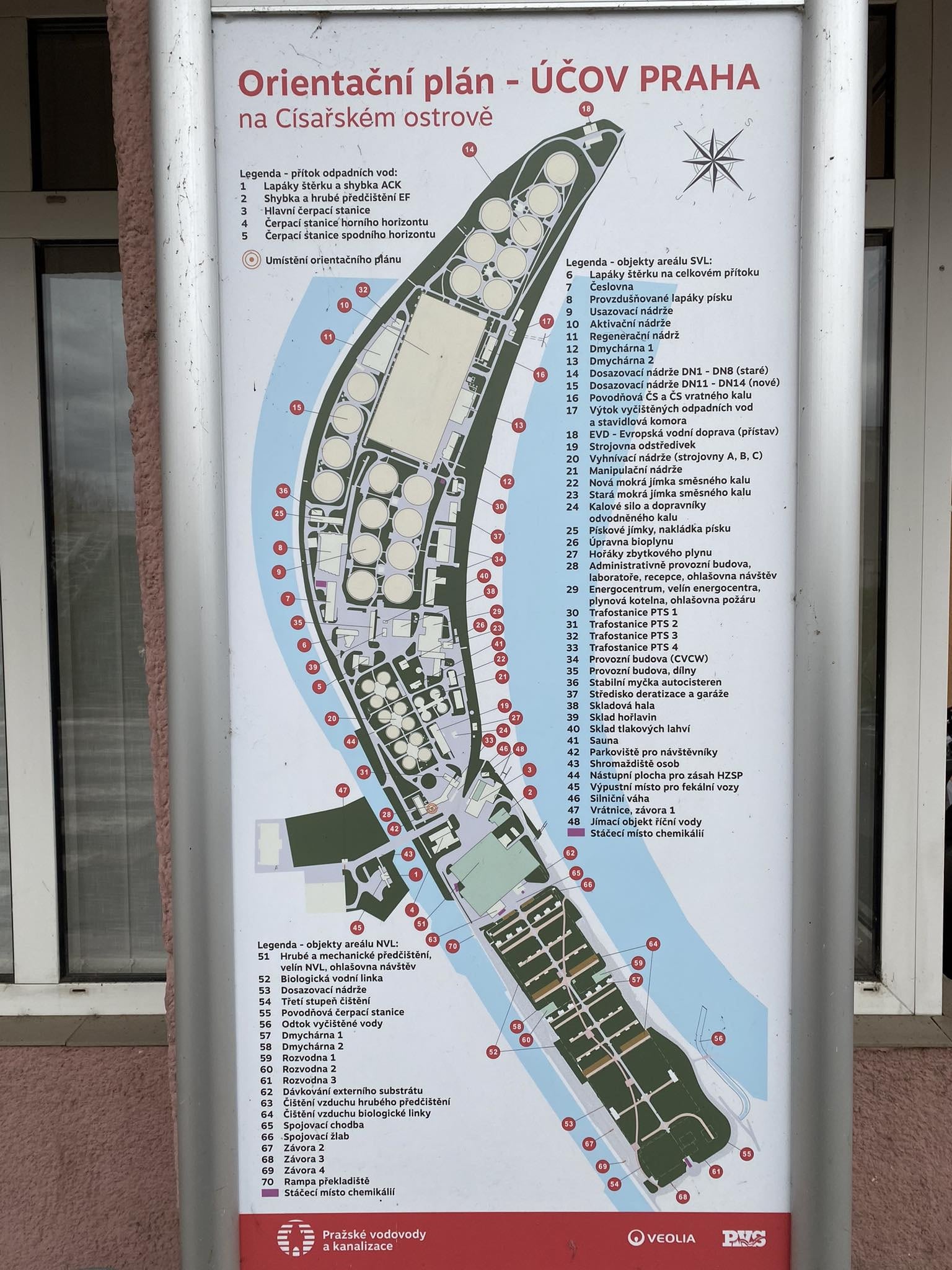 Indicative plan of the Central Wastewater Treatment Plant in Prague
Indicative plan of the Central Wastewater Treatment Plant in Prague
Interesting places in Prague:
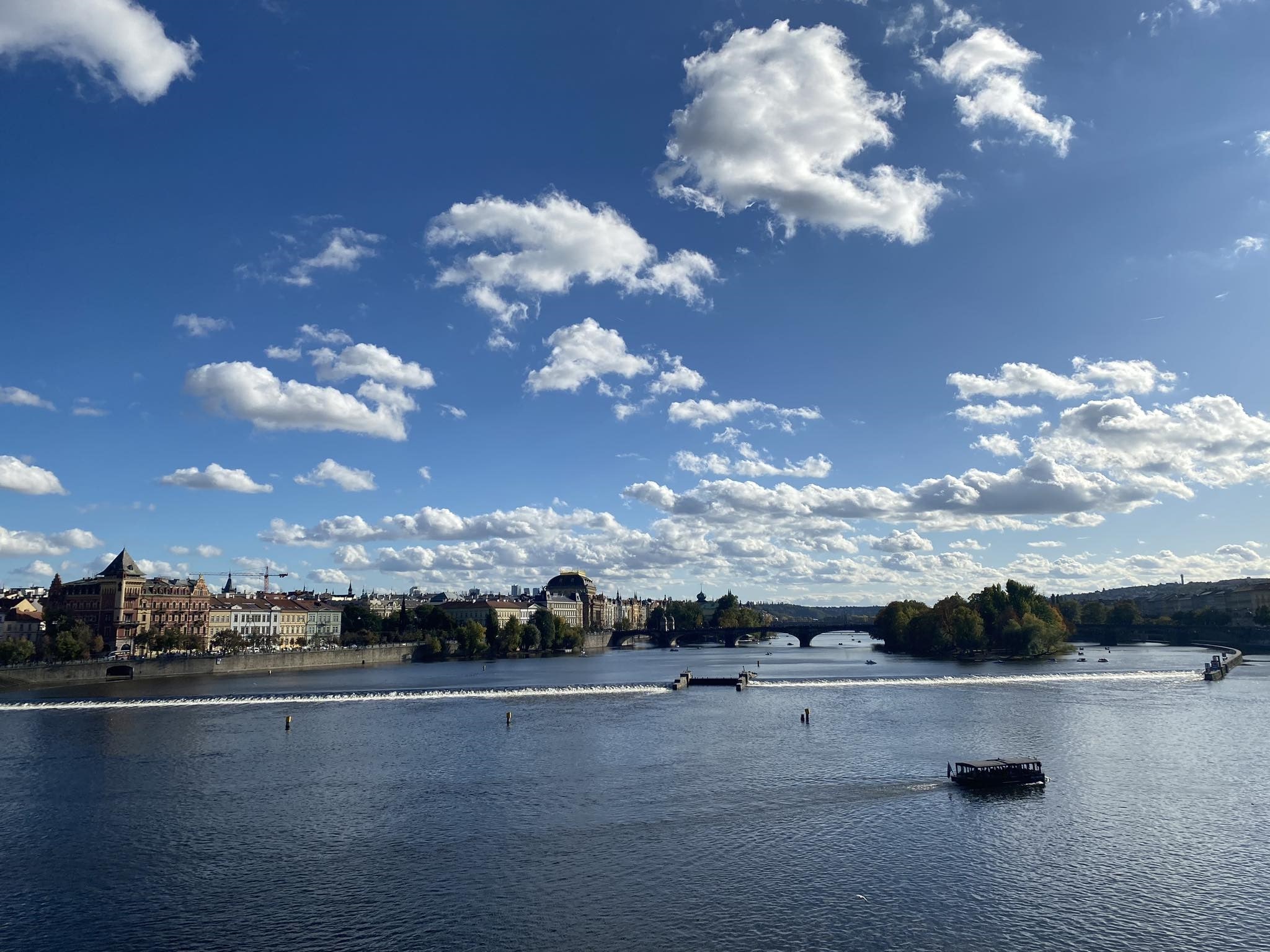 View of the Vltava River from Charles Bridge
View of the Vltava River from Charles Bridge
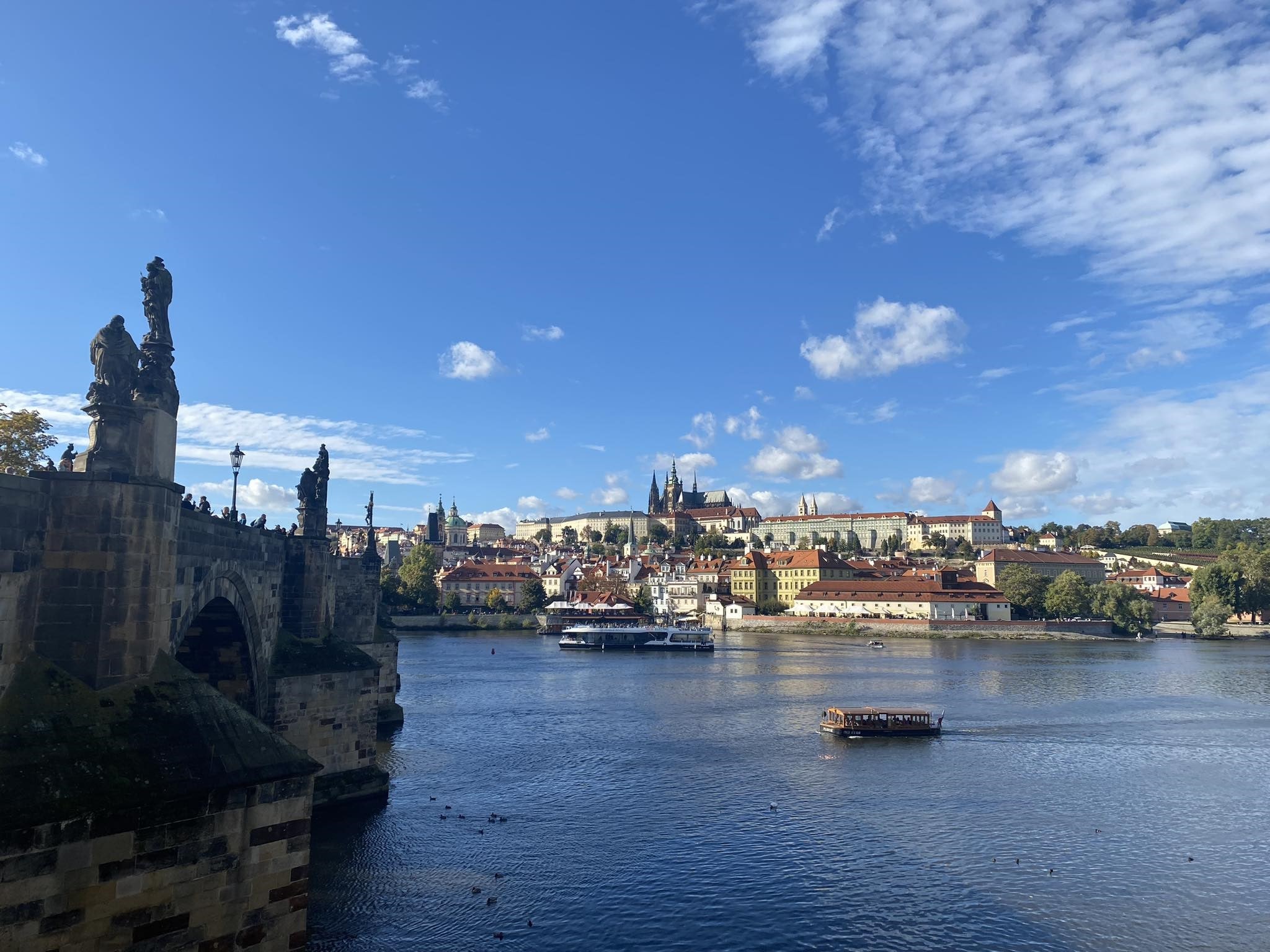 View of the Vltava River and Charles Bridge
View of the Vltava River and Charles Bridge
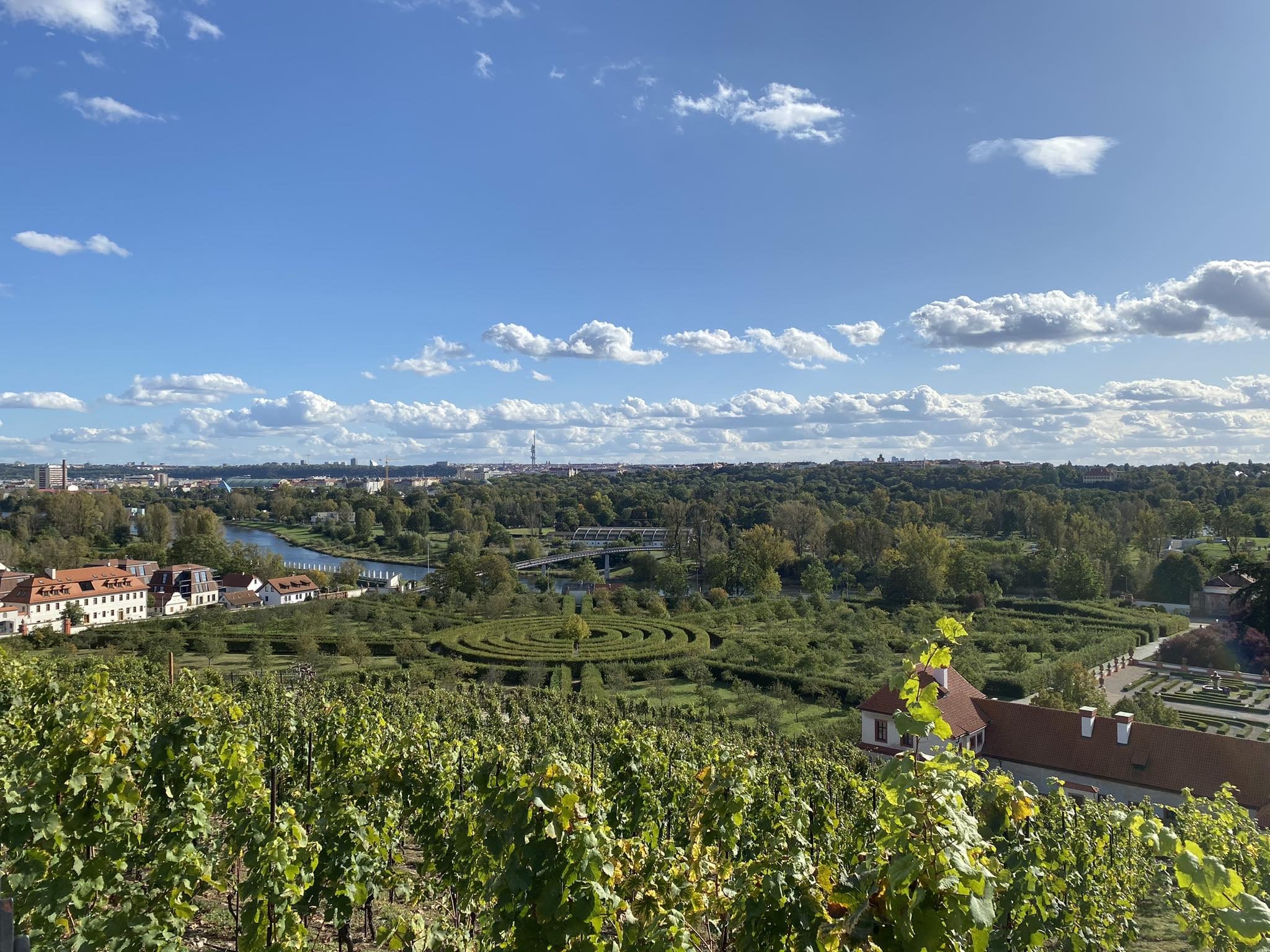 Labyrinth in the gardens of Troy
Labyrinth in the gardens of Troy
Due to the timing of my internship, I had the opportunity to see the magical Prague in a Christmas atmosphere, because many Christmas markets were organized in the city center.
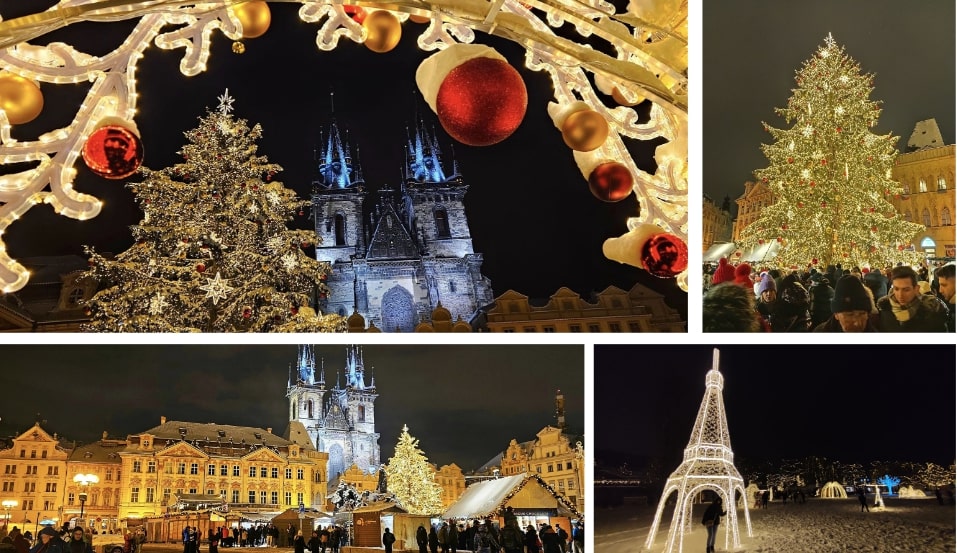 Christmas market on the Old Town Square
Christmas market on the Old Town Square
The internship at the Czech University of Life Sciences Prague allowed me to get to know a new culture, improve my language skills, exchange experiences, explore new issues in the field of sewage sludge and other biodegradable waste management, and meet wonderful people. Moreover, the internship opens up opportunities for cooperation with scientists from a neighboring country.
University of Life Sciences in Lublin
13 Akademicka Street, 20-950 Lublin
VATIN 712 010 37 75
REGON no. 000001896
ePUAP: /UP-Lublin/SkrytkaESP
